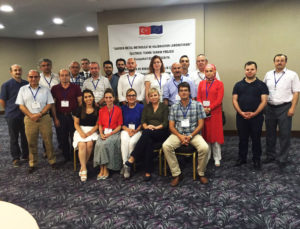
Technical Assistance for Establishment of Rize Tea Research and Application Centre
Rize has the best reserves of tea in Turkey, however, the SMEs in the Tea region is not qualified enough to compete. Hence, the general purpose of the project was to increase the competitiveness of the tea sector concentrated in Rize and its surroundings. More specifically, it wanted

Technical Assistance for Promoting Social Inclusion in Densely Roma Populated Areas
It’s an obvious fact that there is a need to increase social inclusion in heavily populated areas, particularly in Rome, mainly by facilitating their entrance into the formal labour market. Within this context, the project aimed to support Rome’s population by improving the quality of education delivery, vocational

Technical Assistance for Support to the Local Human Rights Boards and Women’s Rights Awareness
Despite laws being passed in the 1990s to eliminate discrimination against women and a law to protect survivors of domestic violence being enacted in 1998, the country lags behind in implementing its national and international gender equality commitments. Women in Turkey continue to face challenges, with gender-based violence

Improvement of Legislation, Control and Awareness in Food Safety, Animal Health and Welfare in Ukraine
The project aims to support the implementation of the Association Agreement’s provisions between the EU and Ukraine concerning food safety, animal health, and welfare.

Technical Assistance for the Operation of Samsun Metals Metrology and Calibration Laboratory
West black sea region of Turkey which the project named TR83 (Samsun, Çorum, Amasya, Tokat) Region, including Sinop, requires to be contributed through socio-economic development. Thus, the purpose of this contract was to strengthen the innovation and quality infrastructure of the metals industry in the TR83 Region. Laboratory’s

Enhancing the Employability of Youth and Unemployed/Low-Skilled Workers, and Improving Their Transition to Employment In Egypt
It can be claimed that advancing the structure and performance of the TVET (Technical and Vocational Education and Training) system and TVET deliveries is essential to better respond to new socio-economic needs, in particular, youth employability and increased competitiveness in the context of the country’s current and future

